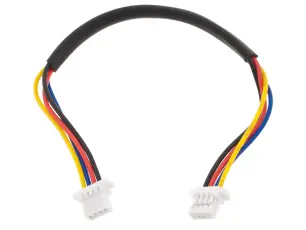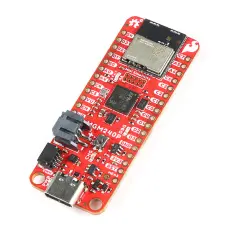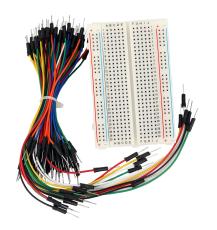Product description
SGP30 is an integrated MOX gas sensor from Sensirion for indoor air quality measurement. The sensor communicates via I2C and provides calibrated output signals with a typical accuracy of 15 %. It combines multiple metal-oxide sensing elements on a single chip to deliver detailed air quality data.
Output values include TVOC (Total Volatile Organic Compounds) in ppb and eCO₂ (equivalent calculated carbon dioxide) in ppm. Measurement range: 0–60,000 ppb for TVOC and 400–60,000 ppm for eCO₂.
Features:
- Detects VOCs and hydrogen (H₂)
- Integrated microcontroller for control, measurement, and calculation
- No I2C clock stretching required
- Supports humidity compensation via external RH sensor
The sensor is mounted on a breakout board with STEMMA QT connectors (Qwiic compatible) for solderless connections and easy integration. Suitable for 3.3 V or 5 V systems thanks to an onboard 1.8 V regulator and level shifter. All pins are also broken out to standard 2.54 mm headers.
Note: The eCO₂ value is derived from hydrogen concentration and is not a true CO₂ measurement. Calibration against known references is recommended for accurate results. Not intended for laboratory use.









